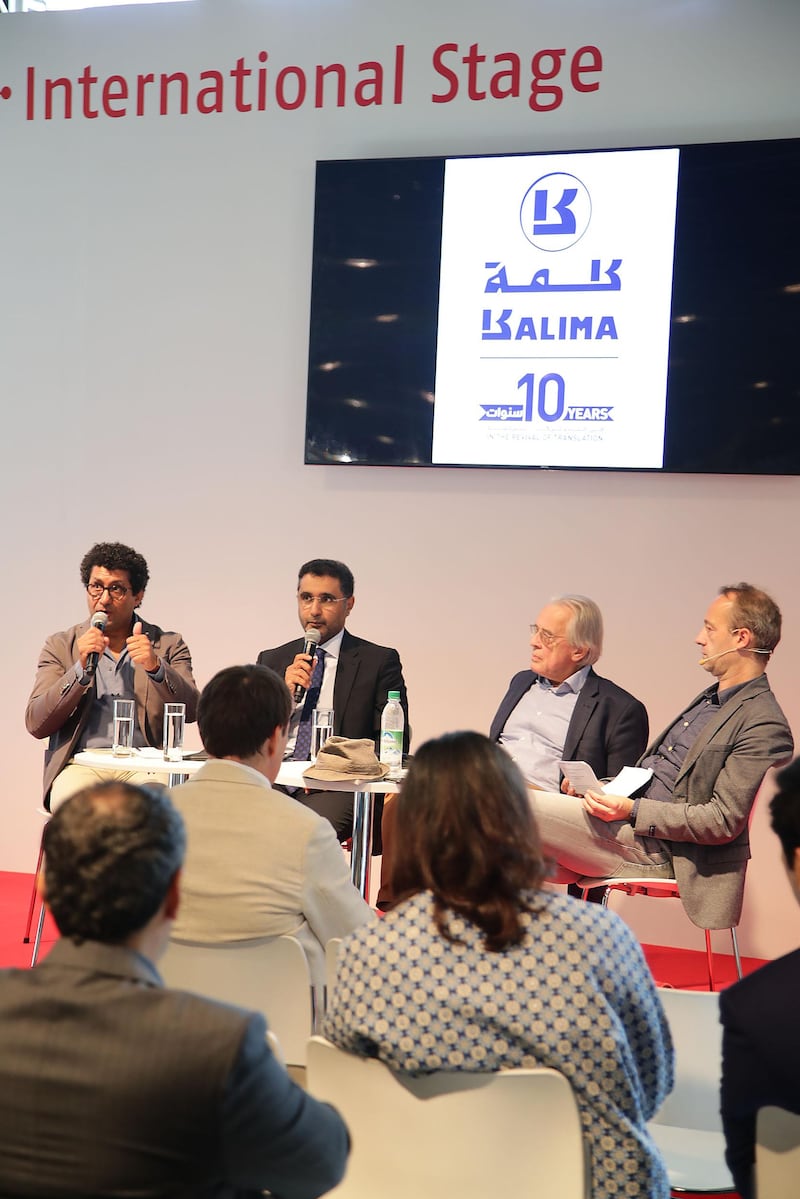German literature is ripe for Arabic translation. This was one of the comments by Jordanian-German translator Mustafa Al Slaiman at a seminar organised by Abu Dhabi Tourism and Culture Authority at the Frankfurt Book Fair.
The annual event is the largest literature trade gathering in the world, but at present, Arabic translations of German texts are dwarfed by those in English, French and Spanish, regional publishers heard.
"That is understandable in a way," Al Slaiman told The National after his presentation on translating the German language into Arabic.
“German culture has arrived late to the Arab world in general and that is down to a few reasons.
“The first being, is the lack of translators, the second being Germany has no real history of colonisation in the region. Another reason is unlike, say, France and the United States, the Arab diaspora in Germany doesn’t have as much of the culture or the intelligentsia. It is more a working-class culture.”
_______________
Read more:
[ Arabic reads you can find in English this autumn ]
[ English translation of Ibn Butlan novella is a bitter pill to make you laugh ]
[ Welsh author Ken Follett on how his popular thrillers stem from deep research ]
_______________
Another major setback, Al Slaiman says, is the viewpoint of the majority of Arabic publishers.
“If you want me to be to totally frank, I will say that, yes, we have many publishers in the Arab world but for many, their motivations are wrong. They don’t operate with the ideals that powers the most esteemed international publishing houses in Europe or the United States.
“The goals are mostly financial and profit-driven. The idea of pushing the culture forward is not really there and that is a sad thing.” The result is a trickle-down effect in which the role of the Arab translator – which Al Slaiman says is more valued in the West – is devalued, with their skills not remunerated fairly.
“It’s the kind of job that comes with its share of desperation,” he sighs. “But we translators know that’s part of the deal. We know the work serves a great purpose.”
With a variety of Arabic publishers in attendance at the book fair, Al Slaiman is cautious in suggesting a starting point for German translation.
“Well, that depends on what the publisher normally focuses on, whether it is history, poetry or fiction, for example. German literature is able to coexist in any part of the world so the accessibility for readers is not really a problem” he says.
“What is the issue, and that goes back to my earlier point, is the aim of the publisher. Yes, it is a business ultimately but if you begin with solely financial aims as opposed to a cultural one, then you really won’t succeed when it comes to choosing the right German works to translate.”
One avenue worth exploring, Al Slaiman says, is some of the German history books focusing on Islamic civilisation.
“If the publishing company is known for such topics, then there is plenty of material there. These texts are some of first forays Germans had in understanding the Arab world,” he says.
“There are historical German works that look at the Ottoman period and some of the characteristics of that time.”
Regarding his personal preferences, Al Slaiman says there is also plenty of poetry that should appeal to regional readers.
"One thing which I recommend is Goethe's West-östlicher Diwan (1819), which is influenced by the Persian poet Hafez. There are some Arabic translations but they are at a beginners' level and taken not from the original source. This needs a proper translation.
“Other German works that are important to translate are the 18th-century poetry of Friedrich Schiller or the more modern 20th-century poetry of Peter Weiss.
“There are such great works that Arabic readers, who as we know have deep appreciation of poetry, will benefit. They can act as a great opening into German literature which is rich and rewarding.”







